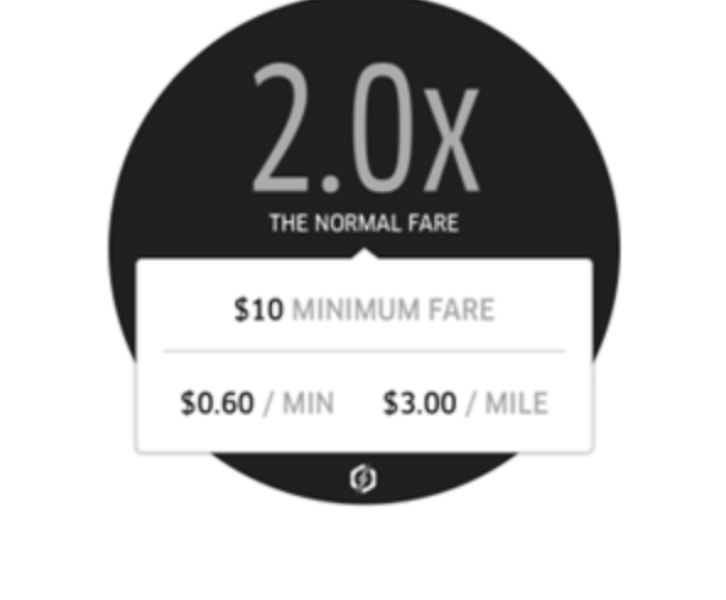
Rideshare, Does Surge Pricing = Increased Liability?
by Jordan Kirby, attorney, Rubenstein Law
Rideshare, Does Surge Pricing = Increased Liability?
Surge pricing occurs when the demand for a ride is higher than the number of drivers in the area of the requested ride. Uber & Lyft dictate the surge pricing to meet the needs of the riders requesting rides. In doing so, Uber knows that this encourages drivers to meet the demand by turning on their driver apps and getting back on the roadways to earn more money. This also encourages drivers who are already on the roadways to reroute to an area that has a higher than usual demand.
There are certain times when demand will be higher, and thus, surge pricing is charged to the rider. For example, peak morning and evening rush hours or during large events or festivals like Hurricane football games or the UltraMusic Fest will often trigger Uber/Lyft surge pricing. With that knowledge, rideshare companies should be held either directly liable or at the very least, vicariously liable, for putting drivers on the roadways, especially when those drivers operate a potentially dangerous instrument such as a motor vehicle in a negligent or careless manner.
To date, no Florida case has reported as succeeding on this theory of direct or vicarious liability. That does not mean the theory will not be brought and succeeded upon in the future. If a collision occurs with a Lyft/Uber driver while surge pricing is in place, consider this theory as a potential avenue to pursue Uber for direct and/or vicarious liability. Whether this is but one factor in the analysis of Uber’s right to control drivers and thus, vicarious liability or the linchpin in pursuing direct liability remains to be seen.
If you are injured as a passenger in an Uber (or Lyft) or by an Uber or Lyft driver, call Rubenstein Law. Put our experience & success in these types of cases to work for you. 1-800-FL-Legal




